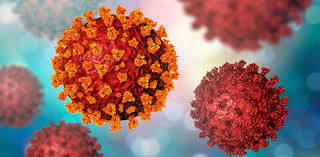The European Medicines Agency’s Committee for Medicinal Products for Human Use (CHMP) has recommended marketing authorizations for three new cancer drugs: Datroway (datopotamab deruxtecan) for advanced breast cancer, Tivdak (tisotumab vedotin) for recurrent or metastatic cervical cancer, and Dyrupeg (pegfilgrastim) for neutropenia following chemotherapy.
Datroway for Breast Cancer
Datroway has received a positive opinion for monotherapy in treating adult patients with unresectable or metastatic hormone receptor–positive, human epidermal growth factor receptor 2–negative breast cancer who have already undergone endocrine therapy and at least one additional line of chemotherapy in an advanced setting.
The drug’s active ingredient, datopotamab deruxtecan, is a monoclonal antibody–drug conjugate that targets trop-2, a tumor-associated antigen. Upon binding, it releases deruxtecan, which induces DNA damage and leads to apoptotic cell death.
A phase 3 randomized, open-label study showed that Datroway improved survival without disease progression compared to chemotherapy. However, common side effects include stomatitis, nausea, fatigue, alopecia, constipation, vomiting, dry eye, keratitis, anemia, decreased appetite, elevated liver enzymes, rash, diarrhea, and neutropenia. Treatment should be supervised by an experienced oncologist.
Tivdak for Cervical Cancer
Tivdak (tisotumab vedotin) has been recommended as monotherapy for adults with recurrent or metastatic cervical cancer whose disease has progressed following systemic therapy.
This antibody-drug conjugate binds to tumor cells expressing tissue factor and releases monomethyl auristatin E, disrupting microtubule networks and causing cell death.
In a phase 3 study, Tivdak showed superiority over chemotherapy in treating recurrent or metastatic cervical cancer, demonstrating prolonged survival and delayed disease progression. Common adverse effects include peripheral neuropathy, nausea, nosebleeds, conjunctivitis, alopecia, anemia, and diarrhea.
Dyrupeg for Neutropenia
Dyrupeg (pegfilgrastim) has been given a positive opinion as a biosimilar medicine to shorten neutropenia duration and prevent febrile neutropenia in chemotherapy patients.
Pegfilgrastim, an immunostimulant colony-stimulating factor, facilitates the development of neutrophils from precursor cells in bone marrow. CHMP confirmed that Dyrupeg has comparable quality, safety, and efficacy to Neulasta (pegfilgrastim), which has been in use in the EU since 2002.
Dyrupeg reduces neutropenia duration and the risk of febrile neutropenia in adult cancer patients undergoing cytotoxic chemotherapy, except for those with chronic myeloid leukemia or myelodysplastic syndromes. It should be administered under the supervision of oncology or hematology specialists.
Next Steps
Once the European Commission grants marketing authorization, detailed guidelines on each medicine’s use will be included in the European public assessment report, available in all EU languages.
Disclaimer: This article is for informational purposes only and should not be considered medical advice. Patients should consult their healthcare providers before making any treatment decisions.












